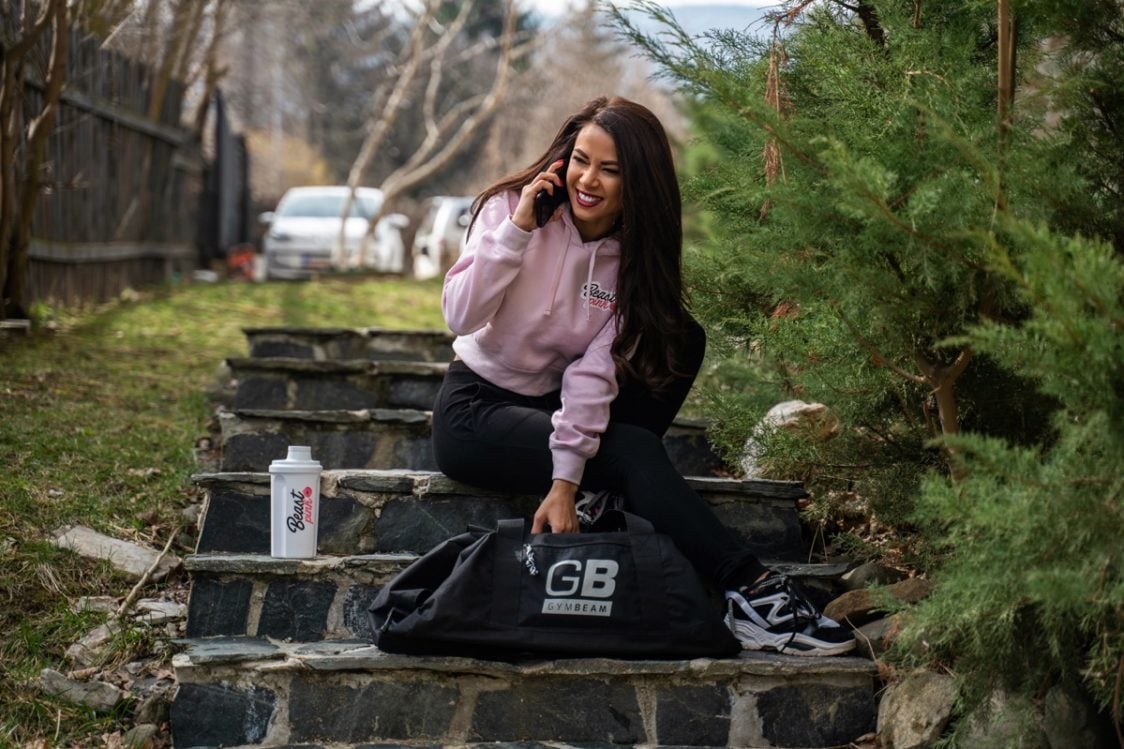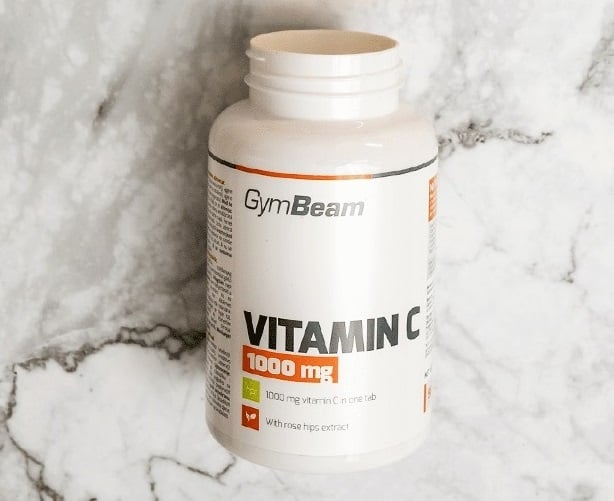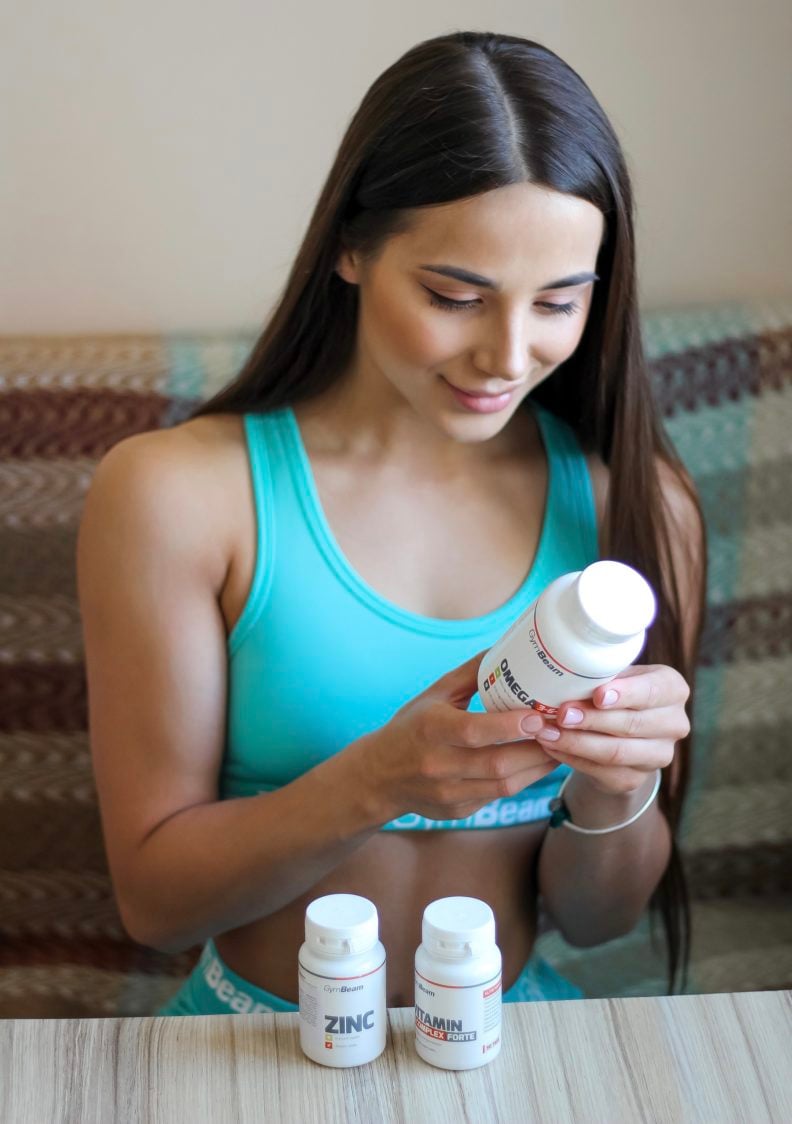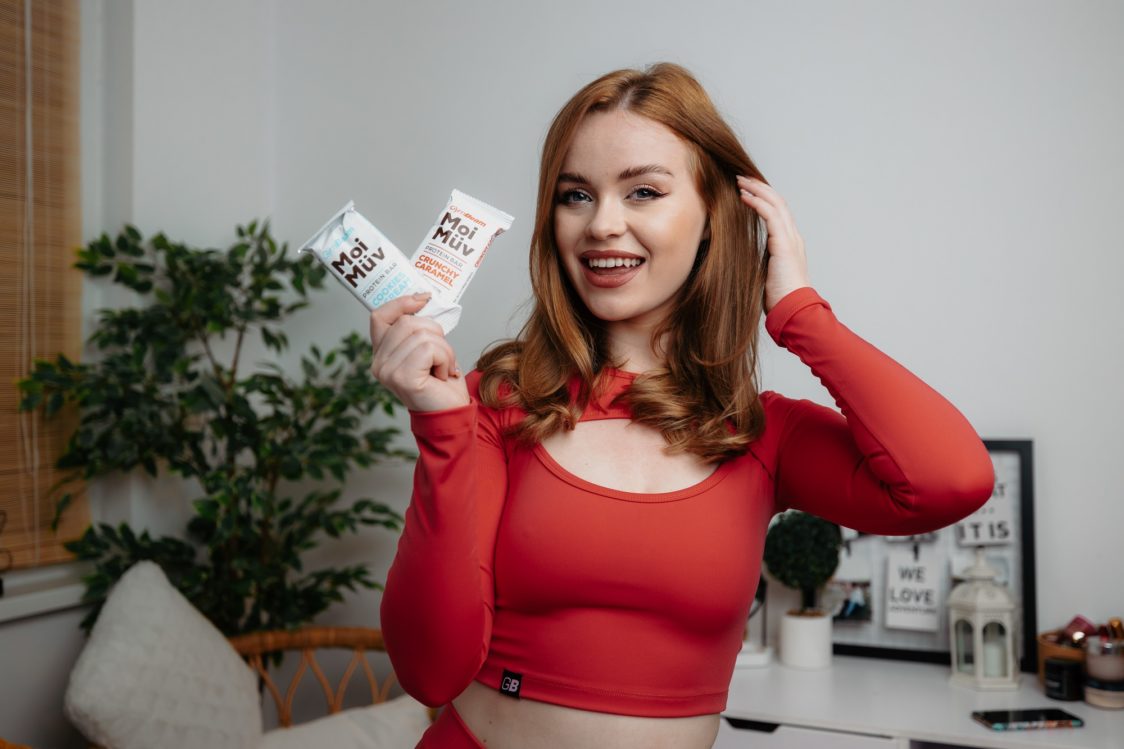Table of Contents
“Long hair, short brain,” is being said with false consolation by women, who wish to have thick and shiny waist length hair like their friends, but no matter what they do, they can´t achieve their goal.
Maybe you will be pleased by a fact that not everything is lost. Although hair quality is largely determined by factors, which we can not influence, there is still a significant part, which we can influence by our own. It would be a pity not to try it!
How does the hair growth work?
But let´s take it from the beginning. In order to analyze in details what is behind the quality of our hair, firstly we should understand how the hair growth works.
Each follicle (the tissue that covers the hair and from which the hair grows) contains hair root made from protein cells. Oxygen then enters the bloodstream. The cells would not be able to divide without oxygen. This division creates a hair, that begins to press against the skin from below. [3]
Gradually, the hair grows out of the skin. At that moment you can already see it on the surface of the head. When growing up, each hair passes through ceruminous gland. As a result, it is lubricated, which gives it the softness and shine. Over the time, the hair is not long enough to pass through the skin. Under such a hair, there is already a new hair slowly growing, which will push it out. „Old“ hair then fell off and is replaced with „new“ hair. [3]
Factors that affect hair quality
How our hair looks like, so for example its density, structure, color and quality, is largely influenced by genetics. Just as it can affect whether your hair will fall out or when you turn grey and so on. We, unfortunately, can´t change genetics. [1]
Other factors which we mostly can not affect, are age and gender. Unfortunately for us, ladies, men generally grow hair faster. As for old age, we can see the fastest hair growth between ages of 15 and 30. Then the process slows down and in some rare case also boldness can occur. [2]
Even if we can not do anything with some factors, it can be a consolation for us that we can partially influence our hair quality. An important role plays for example stress, smoking, as well as diet, which should be balanced and rich in all macro nutrients and micro nutrients. If there is a lack of certain substance in the body, we can help ourselves also with vitamin tablets or other dietary supplements. And which are the key to improve hair quality and its growth?

Vitamins
Vitamin A
Vitamin A is one the vitamins soluble in fat and has an irreplaceable role in the body. It is involved for example in immune functions and is necessary for cells growth and skin health. It also plays an important role for hair, because it supports sebum secretion, thus helping to prevent hair breakage. [4] [10]
During the intake of vitamin A, it is not the best decision to try to take it into body as much as possible. There are also studies that showed that too high intake of vitamin A (specifically it was 6700 micro grams, which is approximately eight times more than the recommended daily intake) can be toxic for the body, which can lead to hair loss. There is a limit to everything. Experimenting with such high vitamins intake should be done only by experts. [4] [5] [6]
Reference intake value for vitamin A: 800 μg [5]
Sources of vitamin A: beef, liver, eggs, fish, carrot, pumpkin, spinach, mango, dietary supplement [27]
B vitamins
B vitamins can include these vitamins, which together form so-called B complex:
- B1 (thiamine)
- B2 (riboflavin)
- B3 (niacin)
- B5 (pantothenic acid)
- B6
- B7 (biotin)
- B9 (folic acid)
- B12 (cobalamin)
We supplement all B vitamins by our own. The exception is biotin, which a healthy body can produce. If you have a problem with hair loss, you should be interested especially in intake of vitamins B2, B7, B9 and B12, because only these have been directly connected with hair loss. [7] [8]
Biotin (B7) was studied by researchers, who studied 541 women aged 9-92. They all reported problems with hair loss. In 38% cases, the primary cause of hair loss was the lack of biotin in the body. [8]
Another study (this time it was a case study) focused on other issue, which is premature graying. Specially, 52 people with this problem at the age of 20, were examined. According to the results in these respondents, a general deficiency of vitamin B12 and B9 was reveleated. [9]
Specially vegetarians or vegans may have the problem with the lack of B vitamin. Its source is the meat and animal products. If you avoid these products, it is suitable to focus on the intake of B vitamins, for example taking a dietary supplement.
Reference intake value for vitamin B: [5] [27]
| VITAMIN | REFERENCE VALUE FOR INTAKE | SOURCES |
|---|---|---|
| B1 (thiamine) | meat, yeast, entrails, legumes | |
| B2 (riboflavin) | meat, yeast, entrails, legumes, milk, leaf vegetable | |
| B3 (niacin) | yeast, entrails, legumes, corn | |
| B5 (pantothenic acid) | entrails, meat, fish, egg yolk, yeast, rice | |
| B6 | meat, yeast, egg yolk, soy, vegetable | |
| B7 (biotin) | eggs, soybeans, fish | |
| B9 (folic acid) | leaf vegetable, cereals, legumes, liver | |
| B12 (cobalamin) | eggs, meat, yeast, entrails |

Vitamin C

Vitamin C is in the body important for metabolism of amino acids, thereby participating on collagen synthesis, which is an important part of hair structure. It also supports for example the iron absorption. The lack of vitamin C is not that huge problem for the hair. Crucial would be its lack in processes linked with collagen and iron, which are very important for hair quality. [8]
Reference intake value for vitamin C: 80-125 mg, higher values apply to older people and breastfeeding women [5] [30]
Sources of vitamin C: citrus, strawberries, tomatoes, peppers, broccoli, dietary supplement [27]
Vitamin D

Vitamin D is one of the vitamins soluble in fat. It is important for example for proper functioning of immune system, healthy teeth, bones and skin. Sufficient intake for healthy bones is important especially for women during menopause. The lack of vitamin D can have negative effect on hair loss. In rare case it can lead to alopecia, what is disease that causes hair loss. [11]
This is confirmed by results of a study that compared the level of vitamin D in healthy individuals and individuals with alopecia. Patients with alopecia had significantly lower level of vitamin D and in addition, there was a significant correlation between this disease and level of vitamin D in the body. [12]
If you feel that this problem might affect also you, do not worry. Supplementing vitamin D is not difficult. We can also draw it by staying in the sun, especially from UVB rays falling on our skin. If it is possible, we should expose the largest possible part of the body to sunlight around noon (at least for 10 minutes). They are the strongest at this time. If it is not possible, dietary supplement in the form of D3 will help.
Reference intake value for vitamin D: 5 μg [5]
Sources of vitamin D: fatty fish, yeast, eggs, milk, UVB rays falling on the skin, dietary supplement in the form of D3 [27]
You might be interested in these products:
Vitamin E
Vitamin E is involved in the balance of harmful free radicals and antioxidants in the body. Opinions differ on whether vitamin E affects hair and hair loss. According to study by Beoye and his team, people with alopecia had a 34,5% increase of hair growth after eight months supplementation of vitamin E. On contrary, Naziroglu with colleagues did not find any statistically important differences in the level of vitamin E in the body of healthy people and patients with alopecia. [13] [14]
So we can not say for sure where the truth is. However, if you will have sufficient amount of vitamin E in the body, it will be only beneficial.
Reference intake value of vitamin E: 12 mg [5]
Sources of vitamin E: vegetable oils, leaf vegetable, wholegrain products, nuts, dietary supplement [27]
More information about the intake of vitamins and minerals, not only connected with the hair, you will find in the article Which dietary supplements are suitable for women?

Minerals
Iron
Iron is one of the minerals that is lacking in the body the most often. In women, this deficit can be associated, for example, with heavy menstruation, when they are bigger blood losses from the body. There are several external acts of the lack of iron that can be visible on the first sight. We can mention, for example, pale or dry skin, dry hair and brittle nails that have tendency to split. [15]
Indian study examined the link between low level of iron in the body and its effect on hair. The study was performed on 35 students aged 20, who suffered from premature hair graying. In this case, the researchers confirmed that not only the low level of iron, but also vitamin D3 or calcium, played a role. [16]
The lack of iron can have also other negative effects. Study by Shrivastava determined the low level of iron as the cause of hair loss in women. Researcher Olsen with colleagues came to the same conclusion. [17] [18]
The relationship between the low level of iron and negative effects on hair is thus undeniable.
In this context, it is important to mention the importance of vitamin C, which supports the absorption of iron. In the case of supplementation, it is appropriate to take both of these supplements together. In the case of diet, is it then appropriate to combine meat (as a source of iron) and for example pepper (as a source of vitamin C).
Reference intake value of iron: 14 mg [5]
Sources of iron: red meat, poultry, eggs, fruit, green vegetable, dietary supplement [27]
Selenium

Selenium is trace element, which is necessary for many bodily processes, for example it contributes to the maintenance of healthy hair. For example, Venton and his team described its effect in his qualitative study. Examined people had long-term problems with hair pigmentation (in this case it was insufficient coloration – grey hair). It was recovered 6-12 months after the intravenous selenium treatment. However, the study should be taken with a grain of salt, because it was performed on only 4 people. [8] [19]
Selenium has also played a role in patients with ovarian cancer, who undertook chemotherapy. In connection with selenium replacement, a significant reduction of hair loss was proven compared to patients, who did not receive selenium. [20]
Although sufficient amount of selenium in the body is desirable, it is again important to watch out for its overdose. Excessive amount of selenium (study reports 400 micro grams) can be toxic for the body and could lead to nausea, brittle nails and rapid hair loss. [21]
Reference intake value of selenium: 55 μg [5]
Sources of selenium: organic meat, seafood, walnuts, dietary supplement [27]

Zinc

Zinc is vital element necessary for proper functioning of the body. It is important for immunity, nervous system or reproductive functions. It also plays and important role in the metabolism of macro nutrients. Its lack is often connect with deteriorated quality of nails, skin and hair. [8]
This is also approved by a review study in patients with alopecia, which shows that 4 out of 6 case control studies confirmed low level in patients with alopecia compared to the groups of healthy people. A strong correlation between the lack of zinc in the body and hair loss was also confirmed by study by Kil and other authors. [22] [23]
Reference intake value of zinc: 10 mg [5]
Sources of zinc: meat, mollusks, legumes, wholegrain products, dietary supplement [27]
Bonus tip
Collagen
Collagen forms a big part of all protein in the body. It is rich in amino acids, which the body needs to produce hair protein. In addition, collagen acts as antioxidant. It fights against compounds that appear in the body due to stress, smoking, consuming poor quality food or drinking alcohol. A high amount of these compounds should damage cells, protein, DNA as well as hair follicles. [24] [25]
Furthermore, collagen helps hair skin. It contributes to the elasticity and strength of suede (one of the skin parts). In case that it would not fulfill this function, it could lead to hair loss. Improving the elasticity of suede after using collagen compared to placebo group, was seen already after eight weeks of the study, which examined 69 women aged 35-55. [26]
The article How to choose the best collagen for healthy skin and joints? will help you to choose the right collagen.
In addition to collagen, you should also not forget other protein, which have, among other things, building function, contributing to the quality and growth of hair. If you do not know how to supplement protein, you can help for example with whey protein or get inspired by our article about protein sources. Especially for women is designed protein Yum Yum Whey, which also contains substances that women often lack (eg magnesium, iron or vitamin B6).
Sources of collagen: eggs, fish, seafood, vegetable, Colla Pink – BeastPink [28]
What can I do for quality hair?
Diet
As already mentioned, the most important factor of quality hair that you can influence, is quality and balanced diet containing enough macro nutrients as well as micro nutrients. If you do not know how to do it, for the beginning it will be enough to add more nuts, fat fish, eggs, legumes, fruit and vegetable to you diet. Especially with nuts, pay attention to the amount, they have more calories that you would like.
The article How to calculate the intake of energy and macro nutrients for weight loss or muscle gain? can help you to set up optimal caloric intake.
If you are a vegetarian or vegan, you should pay more attention to the intake of vitamins and minerals. Animal products are rich sources of mineral substances. If you have excluded them from the diet, you should know how to supplement them. It is very appropriate to have regular check-ups, which will show you the level of vitamins and minerals in the body. If you lack them, you should also take dietary supplements, which will help you with the intake.
People on diet with unreasonably low caloric deficit or people with with eating disorders might have problem with sufficient intake of vitamins and minerals. In this case, it is appropriate to consult the level of these substances with doctors.
In connection with the intake of vitamins, minerals and hair quality, it is important to pay attention to medicines that can cause hair loss. These include, for example blood thinners, cholesterol lowering drugs, antidepressants, amphetamines (used to treat attention deficit disorders), medicines for gout, beta-blockers for high blood pressure or anti rheumatic drugs. Try to do everything so you do not have to take these medications regularly. A surprise for the women can be also a fact that hair loss can be associated with the use of hormonal contraception. [29]

Care
The way how you take care about your hair has a certain affect on the appearance of your hair. It is appropriate to invest money to more quality shampoos and care cosmetics, which will perfectly fit your hair type. If you buy the cheapest shampoo in the supermarket, you can´t expect miracles. It will help your when if you will regularly trim and nourish it with masks. These you can make by yourself at home, there are plenty of recipes.
In order not to harm your hair, it is not recommended to blow it off frequently and for a long time with hot air without the treatment with a protective product. Frequent ironing, curling and dyeing do not help them either. If you want to minimize hair breakage, do not go to sleep with wet hair. You will not harm your hair when wearing loose ponytail overnight.
What to take from it?
Many factors affect the appearance of your hair. Unfortunately, some of them we can not affect, but some we can. It is important to focus on those we can affect, so you can say, that you did maximum effort for the appearance of you hair. Start with healthy balanced diet and care. You will see that the results will come. But if you are still not satisfied with its appearance, try for example a new hairstyle. Even a change like this can help your hair.
If the article was beneficial for you, share it with your friends. Maybe they have the same problem and will be happy, when they finally find a solution how to achieve thick and long hair.
[1] Elaine Fuchs, mouse backskin, whiskers form on the back. Even when 1 Bradley J. Merrill, Colin Jamora, and Ramanuj DasGupta (2001) – At the Roots of a Never-Ending Cycle – https://www.cell.com/developmental-cell/pdf/S1534-5807(01)00022-3.pdf
[2] The College of Trichology – NUTRITION AND HAIR HEALTH – https://www.hairscientists.org/hair-and-scalp-conditions/nutrition-and-hair-health
[3] Gillian E Westgate (2013) – The biology of hair diversity – https://pubmed.ncbi.nlm.nih.gov/23363384/
[4] Institute of Medicine (2001) – Dietary reference intakes for vitamin A, vitamin K, arsenic, boron, chromium, copper, iodine, iron, manganese, molybdenum, nickel, silicon, vanadium, and zinc – https://pubmed.ncbi.nlm.nih.gov/25057538/
[5] Nařízení (EU) č. 1169/2011
[6] Garrow JS, James WPT (1993) – Human nutrition, dietetics – https://onlinelibrary.wiley.com/page/journal/1365277x/homepage/ForAuthors.html
[7] National Health Service (2017) – Vitamins and minerals: B vitamins and folic acid NHS choices – https://www.nhs.uk/conditions/vitamins-and-minerals/vitamin-b/
[8] Hind M. Almohanna . Azhar A. Ahmed . John P. Tsatalis (2018) – The Role of Vitamins and Minerals in Hair Loss: A Review – https://doi.org/10.1007/s13555-018-0278-6
[9] Daulatabad D, Singal A, Grover C, Chhillar N (2017) – Prospective analytical controlled study evaluating serum biotin, vitamin b12, and folic acid in patients with premature canities – https://www.ncbi.nlm.nih.gov/pmc/articles/PMC5514791/
[10] Helen B Everts (2011) – Endogenous retinoids in the hair follicle and sebaceous gland – pubmed.ncbi.nlm.nih.gov/21914489/
[11] Takeda E, Kuroda Y, Saijo T a kolektiv (1987) – 1 alpha-hydroxyvitamin D3 treatment of three patients with 1,25- dihydroxyvitamin D-receptor-defect rickets and alopecia – https://pubmed.ncbi.nlm.nih.gov/3037475/
[12] Gade VKV, Mony A, Munisamy M, Chandrashekar L, Rajappa M (2018) – An investigation of vitamin D status in alopecia areata – https://pubmed.ncbi.nlm.nih.gov/29869122/
[13] Naziroglu M, Kokcam I (2000) – Antioxidants and lipid peroxidation status in the blood of patients with alopecia – https://onlinelibrary.wiley.com/doi/abs/10.1002/1099-0844%28200009%2918%3A3%3C169%3A%3AAID-CBF870%3E3.0.CO%3B2-T
[14] Lim Ai Beoy, Wong Jia Woei, Yuen Kah Hay (2010) – Effects of tocotrienol supplementation on hair growth in human volunteers – https://pubmed.ncbi.nlm.nih.gov/24575202
[15] Division of Dermatology, Japan Red Cross Medical Center, Tokyo (1991) – Iron deficiency: structural and microchemical changes in hair, nails, and skin – https://europepmc.org/article/med/1764360
[16] Bhat RM, Sharma R, Pinto AC, Dandekeri S, Martis J. (2013) – Epidemiological and investigative study of premature graying of hair in higher secondary and preuniversity school children – https://pubmed.ncbi.nlm.nih.gov/23960391/
[17] Shyam Behari Shrivastava (2009) – Diffuse hair loss in an adult female: approach to diagnosis and management – https://pubmed.ncbi.nlm.nih.gov/19172026/
[18] Elise A Olsen, Katherine B Reed, Patrick B Cacchio, Leslie Caudill (2009) – Iron deficiency in female pattern hair loss, chronic telogen effluvium, and control groups – https://pubmed.ncbi.nlm.nih.gov/20947203/
[19] Ohyama M, Terunuma A, Tock CL a kolektiv (2006) – Characterization and isolation of stem cell-enriched human hair follicle bulge cells. J Clin Invest – https://www.ncbi.nlm.nih.gov/pmc/articles/PMC1323261/
[20] Petru E, Petru C, Benedicic C. (2005) – ‘Selenium as an element in the treatment of ovarian cancer in women receiving chemotherapy – https://www.sciencedirect.com/science/article/pii/S0090825803008874
[21] MacFarquhar JK, Broussard DL, Melstrom P a kolektiv (2010) – Acute selenium toxicity associated with a dietary supplement – https://pubmed.ncbi.nlm.nih.gov/20142570/
[22] Thompson JM, Mirza MA, Park MK, Qureshi AA, Cho E – The role of micronutrients in alopecia areata: a review – https://www.ncbi.nlm.nih.gov/pmc/articles/PMC5685931/
[23] Abdel Fattah NS, Atef MM, Al-Qaradaghi SM (2016) – Evaluation of serum zinc level in patients with newly diagnosed and resistant alopecia areata – https://pubmed.ncbi.nlm.nih.gov/26147750/
[24] Guoyao Wu (2009) – Amino acids: metabolism, functions, and nutrition – https://pubmed.ncbi.nlm.nih.gov/19301095/
[25] R M Trüeb – The impact of oxidative stress on hair – https://pubmed.ncbi.nlm.nih.gov/26574302/
[26] E Proksch, D Segger, J Degwert, M Schunck, V Zague, S Oesser – Oral supplementation of specific collagen peptides has beneficial effects on human skin physiology: a double-blind, placebo-controlled study – https://pubmed.ncbi.nlm.nih.gov/23949208/
[27] Harvard Health Publishing (2016) – The best foods for vitamins and minerals – https://www.health.harvard.edu/staying-healthy/the-best-foods-for-vitamins-and-minerals
[28] Hashim, P., Mohd Ridzwan, M. S., Bakar, J. and Mat Hashim, D. (2015) – Collagen in food and beverage industries – psasir.upm.edu.my/id/eprint/36110/1/(1).pdf
[29] How to treat hair loss from medication (2020) – https://www.medicalnewstoday.com/articles/327068 – 30] Deutsche Gesellschaft für Ernährung e.V. [https://www.dge.de/wissenschaft/referenzwerte/
